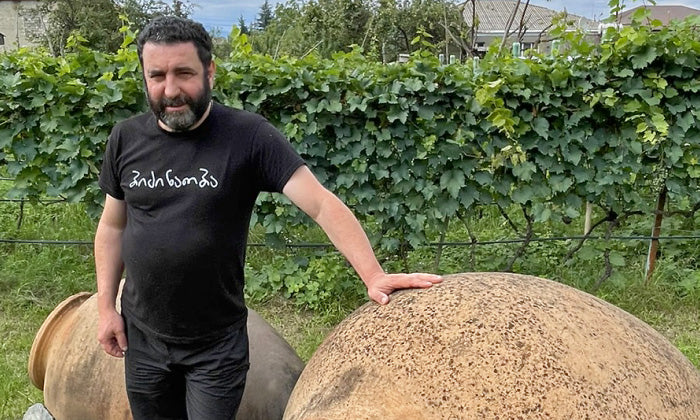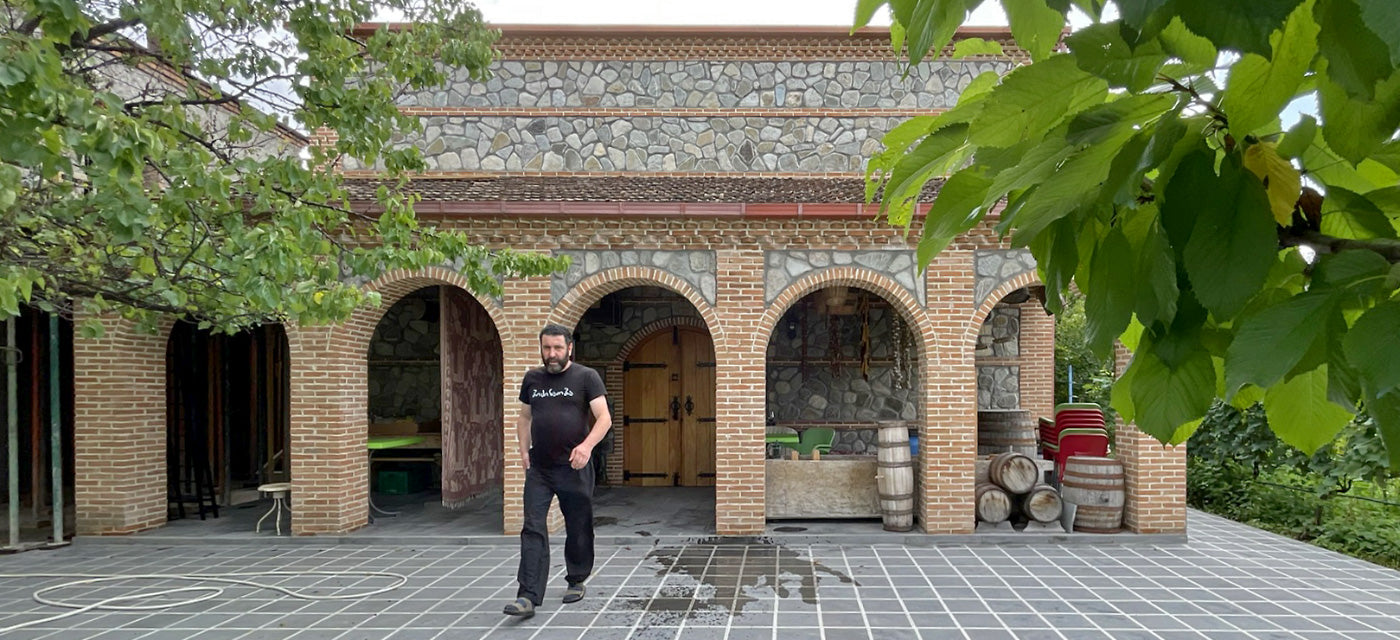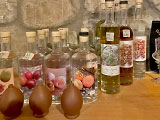
Levan Gogoladze: Serendipity, Faith and Surgical Precision
We are excited to present the second interview in our series, featuring Levani's Marani, a boutique winery in Akhmeta. In this conversation, Levan shares his journey, the guiding principles behind his craft, and his vision for the future of winemaking.


My journey into winemaking was quite unexpected. I'm a doctor by profession, who was working in the reanimation department of a hospital. However, an eye injury changed the course of my life. During my autumn visits to the village, neighbors would remind me that the grapes on the my ancestral vineyards needed harvesting to prevent spoilage. So, I began picking the grapes and making wine from them. To my surprise, the wine turned out well, and people in Tbilisi appreciated it. This unexpected success and the joy it brought to others encouraged me to continue this new pursuit every autumn. Gradually, what started as a necessity became a true passion.
I first started making wine around 2010. The positive feedback from family and friends motivated me to continue each year. With the help of neighbors, I not only made wine but also began producing Chacha - a high-alcohol drink made from grape must, similar to Grappa. What started as a delightful hobby gradually evolved into a more serious venture.



The transition was gradual but filled with serendipitous moments, all was ordaned by the grace of God. My grandfather and great-grandfather passed away early, leaving the women in the family unable to maintain the large vineyard, so they sold it, including the old wine cellar (Marani). One day, the neighbor who bought the plot came to me and asked if I wanted to take Qvevris from old family cellar. These Qvevris, which are over 100 years old, were crucial. Despite losing two large Qvevris during excavation and transportation, my godfather’s relative in Western Georgia made new ones for me. This marked the beginning of building my Marani in 2016, using funds from selling our family house in Chiatura. By 2018, we were finally pouring wine into the Qvevris. It was a labor of love, and seeing it come together was incredibly fulfilling.
From the start, I was committed to making natural Qvevri wine, free from chemicals, partly because of my own allergies. The idea of using Qvevris came to me by chance, but it felt like a divine nudge in the right direction. My grandfather made wine in Qvevris, but after his passing, the women in the family couldn’t manage them, so they began making wine in oak barrels - a practice I initially planned to follow. However, I soon realized the unique potential of Qvevri wine. There's something deeply satisfying about creating wine in such a traditional and natural way, knowing it aligns with both my health needs and my values.



My winemaking style developed significantly with the guidance of Aleksi Pitskhelauri, who was associated with Alaverdi Monastery. He mentored me for a year, teaching me the intricacies of traditional Kakhetian winemaking.This mentorship was invaluable in shaping my approach. Although some suggested I adopt a European style, I remained committed to producing robust, tannic wines that are characteristic of traditional Kakhetian methods. Aleks’s teachings were more than technical; they were about respecting the wine and its journey -something that resonated deeply with me.
Maintaining cleanliness is paramount in winemaking, much like in surgery. Aseptic and antiseptic practices are the first things you learn as a doctor, and they have become a cornerstone of my winemaking process. Additionally, factors such as fermentation temperature, the frequency of transferring wine, and the aging process in Qvevris all contribute to the uniqueness of my wine. Even though I purchase grapes from different vineyards, the consistent care and methodical approach ensure that my wine retains its distinctive style. It’s a meticulous process, but each step is taken with love and dedication.



Initially, word of mouth and local tastings played a significant role in generating interest in my wine. However, the pandemic posed challenges, affecting sales and marketing efforts. Joining the Natural Wine Association in 2021 and participating in exhibitions provided valuable exposure. While marketing continues to be a challenge, increasing awareness and participating in more exhibitions are key strategies for overcoming this hurdle. Seeing people enjoy my wine and hearing their feedback has been incredibly rewarding. It's about sharing a piece of myself with each bottle.
Start slowly and grow gradually. Building a big Marani should be a carefully considered next step, ensuring you have both the grapes and the resources to process them properly. The journey is challenging but deeply rewarding, especially when you see others appreciate your wine. It’s a journey of passion, patience, and perseverance. Each bottle tells a story, and there’s immense satisfaction in being the author of that story.



I aim to expand my lineup of wines by planting my own vineyards, specifically rare varieties like Akhmetis Tsiteli, a local, village-specific red grape variety with huge potential. Additionally, I want to spread my vineyards across different locations to diversify the aromas and qualities of my wines. My ultimate goal is to have all production come from my own vineyards, ensuring control over quality and style. I’m committed to refining and growing my operations, creating something lasting and meaningful - rooted in tradition, yet always evolving.
The logo features a swallow and its nest, inspired by a real nest on the second floor of our house. Swallows have been nesting there since the house was built 80 years ago. They bring positive energy and are a cherished part of our home. The logo symbolizes this connection and the idea of returning to one's roots, much like the swallows returning each year around the Annunciation - a time that coincides with our tradition of opening the Qvevris. It’s a symbol of home, tradition, and continuity. Every time I see the swallows, I’m reminded of why I started this journey and the legacy I hope to leave.

























